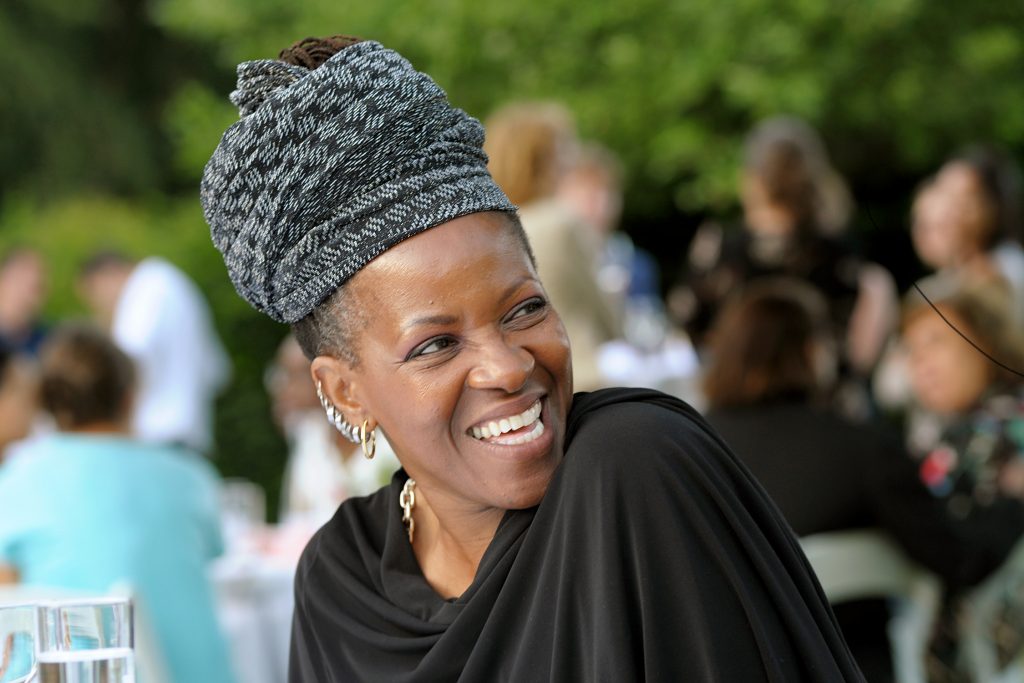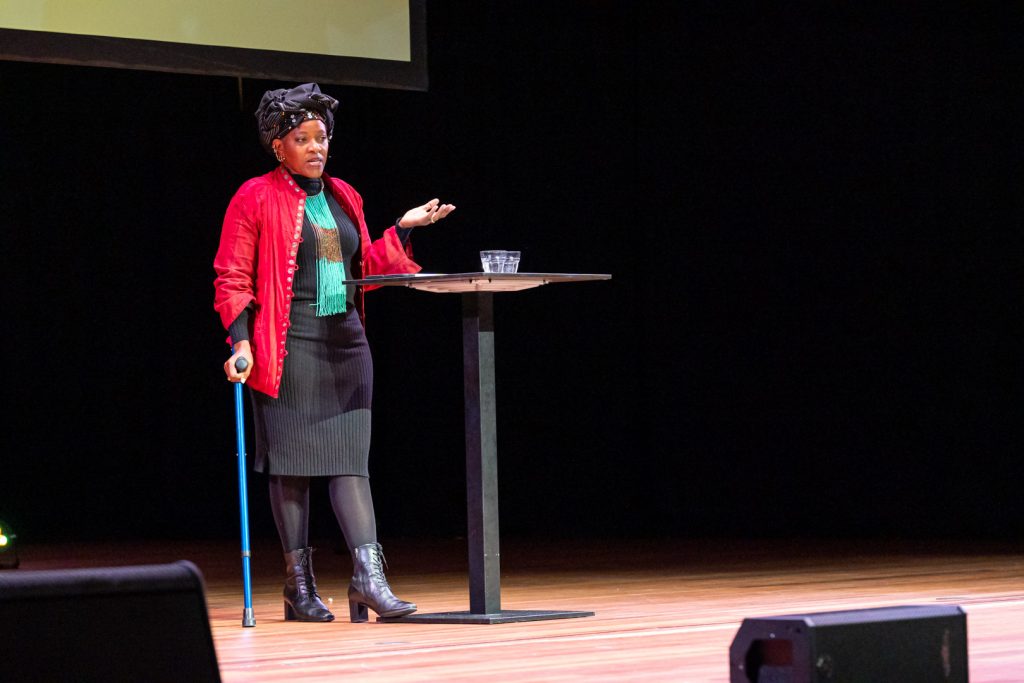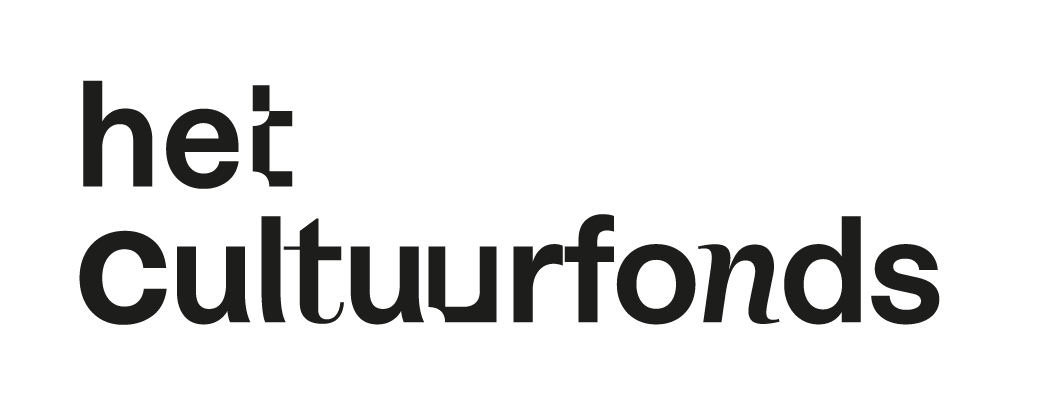Why? (and other questions we should never stop asking)
Hannie Schaft Lecture by Mpho Tutu van Furth – Sunday, 27th of November 2022
You can also read the entire lecture here
Why? (and other questions we should never stop asking)
Spoken on November 27th 2022 at the National Hannie Schaft Commemoration
Each of my grandchildren is in a phase. My granddaughter, Ali’yah (Ali) is two and is testing her new favourite word, “No”. It’s not always that she doesn’t want the thing offered or that she doesn’t want to do the thing demanded. It’s just that she has discovered that she has in her mouth the power to change her world. “No” is a powerful tool in the hands of a two-year old who doesn’t have very much decision-making power over her little life.
Her brother, Azania (Azu) is older. He has passed the phase of the automatic “No” and is deploying a different word. His word is “Why?”. Sometimes the word is a challenge: “Why should I do this thing I don’t want to do?” For instance “Why must I pack away my toys now?” “Why must I go to bed at 8pm?” (It’s still light outside and I can’t read a clock so your 8pm has no meaning to me) or “Why can’t I have the rest of the blueberries now?” But often his “Why?” isn’t a challenge, it really is an expression of curiosity. Like when he asks on a day at the beach.”Why do the waves keep coming back and then running away?” “Or why does the lemon tree at Koko’s house make flowers?”

My grandchildren are fortunate. Their mother takes them seriously. She takes heed of her daughter’s “No” and doesn’t impose the cuddle that Ali has denied her. She doesn’t shout down Ali’s refusal to dress for school. “Ok, my guy”, she responds to her child. “So what is your plan?” They cobble together a compromise; a high-five instead of a cuddle; an Ali-approved outfit for school.
My daughter follows her son down the “Why” rabbit hole until she runs out of “because”. But instead of “I don’t know” being the wall that stops their progress Azania’s mom lets it become a door into a whole new world that they can discover together.
“Knowledge”, it is said, “is power”. We have been taught to use the power of our knowledge as a weapon to maintain our power over others. And because knowledge is power lack of knowledge must be weakness. So we hide that we don’t know for fear that others will use the power of their knowledge to oppress us.
What would happen if, instead of growing out of the two year old’s “no” and the four year old’s why? we clung to them. Then “No” and “why” would be compasses to help us navigate a complex and uncertain world. And “I don’t know”, would not the white flag of surrender that we hoist to an unrelenting enemy. “I don’t know” would be, instead, a door of opportunity that we could walk through together into the land of justice and solidarity.
This lecture has challenged me. I have struggled with my convictions and my judgements. I have come to this talk with what I have lived and what I have learned of world history. And I have come with the questions that still trouble me. I grew up at a different time in a different land with a different reality than did Hannie Schaft. The people who oppressed us were not Nazi occupiers but descendants of the Dutch and the English colonists. They had invaded our territory, stolen our land, and trampled our dignity.
When I was in my lates teens I participated in the commemorations of the Soweto uprisings. The uprising and the (herdenking) commemoration I attended happened in the segregated township of Soweto. Soweto was a sprawling black ghetto on the edge of the white Johannesburg. The apartheid government of the day had learned its lessons from the Nazis and built an area in which the black people they needed (as an economic resource) but feared (as an oppressed majority) could be contained. In 1976 the minister responsible for bantu education…(the inferior education doled out to black South Africans) decided that Afrikaans, should be the medium of instruction in all schools for black children. Afrikaans was considered by black people the language of the oppressor. The decision by the minister was just another unnecessary expression of white power. In June black high school students staged a peaceful march to deliver a petition opposing the new rule. They were met with the ferocious violence of the state. Many children were killed, many more were imprisoned or fled into exile. In the years that followed we commemorated that march every June 16th with church services. The government banned rallies, marches and other public gatherings to remember so we met, instead, to pray
The memorial I attended with my father and sisters that year was held at Regina Mundi, the Roman Catholic cathedral in Soweto. My father was one of the officiants. He had parked his car inside the church yard. After the service people streamed out of the church heading for home. We were met by a phalanx of riot police. A volatile situation turned violent and chaotic. My father was out in the street trying to mediate between the police and the young people when a group of riot police surged into the church yard. One of my sisters and I managed to scramble into my dad’s car. We were quickly overwhelmed by other people fleeing the whip-wielding police. The automobile became like a clown car struggling to contain the terrified passenger load. My face was pressed up against the windscreen. I watched enraged and helpless as the police lashed my sister, her African-American fiancée, and the parish priest with rawhide whips. When the police retreated we tumbled out of the car. “If I had a gun”, my eldest sister fumed, “I would have shot them”. Immediately my mind jumped to join her in that sentiment. But hard on the heels of my anger came the questions: Why would I shoot him? What would that solve? What would be better? How would one more death advance our cause?And how far would the consequences of that death send out bitter ripples? The injury would reach from the policeman to his children, and his wife, and his friends and his family…. “No!” I heard the shout in my head. “There must be another way.” Another strand of my activism was born that day. Preaching, teaching, public speaking, marching were all part of my antiapartheid work. Scholarships for refugees from South Africa and Namibia also formed my response to the injustice of apartheid. It has been important for me to be clear about the injustices to which I am opposed. It is and has been equally important to imagine the world of justice in which I want to live. I know what I am running away from. I have to know what I am running towards. I also have to know along which paths I am willing to run.

I do not judge Hannie. She was a young woman in a war who made the best decision she felt she could in the circumstance in which she lived.
I do judge the politicians and media people who make a cynical morality play of wars that they have made no effort to avert. And I do judge us, world citizens who so easily abdicate the citizen’s duty to say “No” and to ask “Why?”
Why do we have a head-count of every death in Ukraine when those killed in Iraq, Yemen and Afghanistan were just “collateral damage”?
Why are Europe and the US sending upwards of 93 billion euro to prosecute a war that we have already admitted will only end at the negotiating table? And this while all but refusing to address the climate crisis that will fuel the next wars? (admittedly those nations have pledged 2.4 billion euro per year to mitigate the consequences of climate change in poor countries )
Why do we claim to want peace and do none of the things that make for peace?
A two year old would say “No!”
A four year old would ask “Why”?
Instead, we seem like an unquestioning one year old, and swallow the bitter pills of war driven inflation, and the prospect of war driven global starvation. After all it is sugar-coated, in the west, with government subsidies to mask the vile taste. Of course, war, peace, invasion and occupation are not simple issues. We could be curious adults who admit “I don’t know the answer,” but let’s join together to discover together the way out of this morass.
Perhaps we have been too quick to believe our own stories of good and evil. We are certain that we are on the side of right and good, and they are not.
Hannie, I believe, thought very hard about the choices made . She decided she could kill the fathers. She decided she could not kidnap the children. Others like Etty Hillesum also dared to question and to think. She wrote from the transit camp at Westerbork “I know that those who hate have good reason to do so. But why should we always have to choose the cheapest and easiest way? It has been brought home forcibly to me here how every atom of hatred added to the world makes it an even more inhospitable place.”
(― Etty Hillesum, An Interrupted Life: The Diaries, 1941-1943; and Letters from Westerbork) thought about it, enlarging the definition of what is to be part of a larger we.
I am not here to judge Hannie or Etty. I don’t ask us to become them. I am here to affirm that they, at least, thought about things and acted on their conclusions. But have we even begun to think about where and how we live? Do we dare to say “No” ravaging the planet with war, climate change, or injustice? Do we dare to ask why generations yet unborn must live with the consequences seen in the world we leave behind? We don’t have to have all the answers. We can admit “I don’t know. Let’s find solutions together.”
